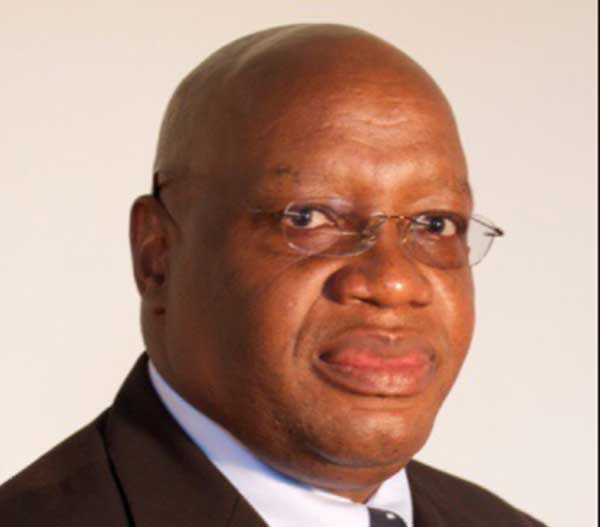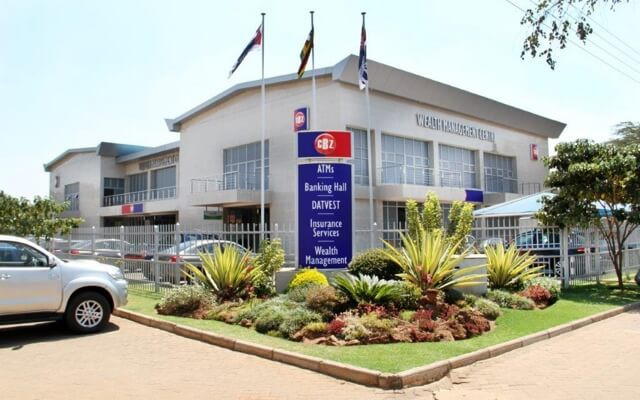
PHARMACEUTICAL and personal care products manufacturer, Datlabs Limited in June 2022 announced the retirement of its chief executive officer, Todd Moyo (TM) after 37 years. NewsDay (ND) Business senior reporter Mthandazo Nyoni spoke to Moyo extensively on various issues, including regrets and challenges affecting the pharmaceutical sector. Below are excerpts.
ND: On June 30, 2022 you retired as Datlabs chief executive officer. Tell us your experiences.
TM: I feel like it’s been a much longer time.With all that has kept me preoccupied during my stay here with all the ups and downs. But not for a single moment do I regret the journey and the time that I have put in. I have enjoyed my stay at Datlabs and have acquired a lot of skills, even in areas that I didn’t expect to be exposed to, but especially in business and people relationships in a variety of companies and social institutions. I remain grateful to Datlabs for having given me the opportunity to also work as a non-executive director in many other companies.
ND: What do you see as your greatest successes?
TM: The greatest achievement was ensuring that Datlabs continued to prosper even in very difficult economic times when most companies in the country shut their doors. This was possible because of the team spirit that was created and existed within the business together with the support of shareholders in times of need. We managed to generate sufficient internal financial resources in critical times to fund the business. We are grateful to banks that supported us at such times. The successful introduction of new brands and products such as Camphacare after the end of the Ingram’s Camphour cream contract generated cash flows. The spirit by the whole Datlabs team in making this will remain forever etched in my mind. This demonstrated the power of relationships in running a successful business. The introduction of some new pharmaceutical products enhanced our product portfolio. To see some staff progress from supplementing their “O” Levels to obtaining honours degrees in their chosen areas is more than fulfilling.
ND: What were the greatest challenges you faced?
TM: The pharmaceutical business needs a lot of continuing capital investments and this was not always available in times of economic uncertainties. But we managed to generate resources from within the business to improve our facilities and production capabilities. Working with old machinery in a competitive industry was a challenge as it was difficult to effectively compete with international companies.
ND: How did you manage?
- Chamisa under fire over US$120K donation
- Mavhunga puts DeMbare into Chibuku quarterfinals
- Pension funds bet on Cabora Bassa oilfields
- Councils defy govt fire tender directive
Keep Reading
TM: Our various stakeholders were always there to support us and we remain grateful to them. The various challenges helped me grow as a person and as a professional and helped me develop strong relationships which proved useful. Some challenges (like the times of price controls) were quite painful but what was important was to learn from these without forgetting the experiences. I also learnt that the respectful and professional way you treat other people does not mean that the same people will treat you the same way but it is important to remain true and honest at all times and hold onto your integrity at all times.
ND: What have been the most significant changes in work culture since you started?
TM: When I started working, the country was in political and economic transition and that had its own culture challenges in the working environments.
In the first few years of foreign currency challenges and financial constraints, we had to use very old outdated manufacturing machines which our artisans kept going much to their credit by machining much-needed parts and spares in our workshops. Most of the machines had been discontinued by original manufacturers, so we had to plan to keep on going.
We also had to be innovative to get the foreign currency and the finance that was required to keep going and improve our factories. I have seen quite significant developments on the IT side and glad to have been personally involved in the progress in that area. It made managing the business much easier as information became easily available, faster and gave us more time to concentrate in other areas of the business.
The development on the IT side also encouraged our people especially personal assistants to develop themselves and most of them now have degrees and professional qualifications.
ND: What changes do you believe could benefit the organisation?
TM: A positive change in the economic environment would enable the company to grow to its full potential. Additional volumes in the form of increased output and new additional product portfolios would not only grow sales significantly but lower the unit costs per product to make it more competitive with local and international competition.
This would ensure that most pharmaceutical and personal care products are manufactured locally and easily available to the local and regional population.
ND: After Datlabs, where to? Have you considered offering your services on a part-time or consulting basis? If so, what is the type of work would you most enjoy?
TM: As you saw from the notice you refer to, my relationship with Datlabs will continue in a different capacity and I am grateful to the current shareholders for affording me this opportunity and hope I can continue giving my best in whatever capacity I am asked to assist. The idea is to take the company to the next level with fellow shareholders.
I have always enjoyed giving business advice at an executive level and would still like to assist wherever my services are needed. I have also enjoyed working with the young people and the up-and-coming, giving them motivational and professional advice especially on their personal development and on business prospects. I remain grateful to Datlabs for having given me the independence to run the company as well as the opportunity not only to fulfil my career expectations but for allowing me to work with other businesses at a non-executive level. I also believe I have given the best to the company and its shareholders and look back with satisfaction as I take early retirement from my current executive position.
I have been on the boards of various listed and non-listed companies (locally and regionally) and gained a lot of experience in various sectors of the economy, and I will continue to offer my services in this regard. I will also hopefully be able to assist in reviving some existing family businesses to achieve their full potential.
ND: When you reflect back on your tenure as CEO, is there anything that you feel you could have done better?
TM: On reflection, I think I did my best for the company when I was the CEO. There were many moments where as a company and me at the helm of the ship were in unsteady waters due to the business environment being so turbulent, but we managed to keep afloat and raise our sails to propel ourselves forward. One of my regrets would be that I had tried to establish an employee share ownership scheme for the staff especially in the years indigenisation but this unfortunately did not go through as expected at the relevant time.
I put in many hours in that position at Datlabs and feel that I could have balanced those hours more with family needs although I did the best for them whenever there was an opportunity to do so but it could have been better.
ND: The company said your association with it will continue in a different capacity. Which capacity is this?
TM: During my time at Datlabs, I have had the opportunity of looking after various departments such as finance, information technology and administration, sales and marketing, technical including logistics and production together in liaison with various stakeholders at a strategic level.
It is my intention to assist wherever there is a need without interfering in the duties of the executives. I remain grateful to the current shareholders for having given me the opportunity to continue the association with the company and hopefully grow it to greater heights and to the next level.
ND: What major challenges does the sector face?
TM: As a country we still import quite a lot of our pharmaceutical needs from international companies especially from Asia. The local manufacturing industry has done its best to supply some of these needs but there is still an opportunity to grow the offering of products considering the disease patterns in the country.
The whole industry needs working capital to grow especially in the form of foreign currency requirements. I believe the industry has skills and structures to make this happen. A recent study conducted with the aid of the United Nations has identified the needs of the pharmaceutical sector and the approximate funding required but regrettably those findings are still to be worked on as the determined funding is not readily available.
ND: What can be done for the sector to grow?
TM: There is an opportunity for the sector to grow significantly if the recommendations in the UN pharmaceutical document are followed up but the key is adequate funding for both capital and working capital requirements and growth into the regional market.











